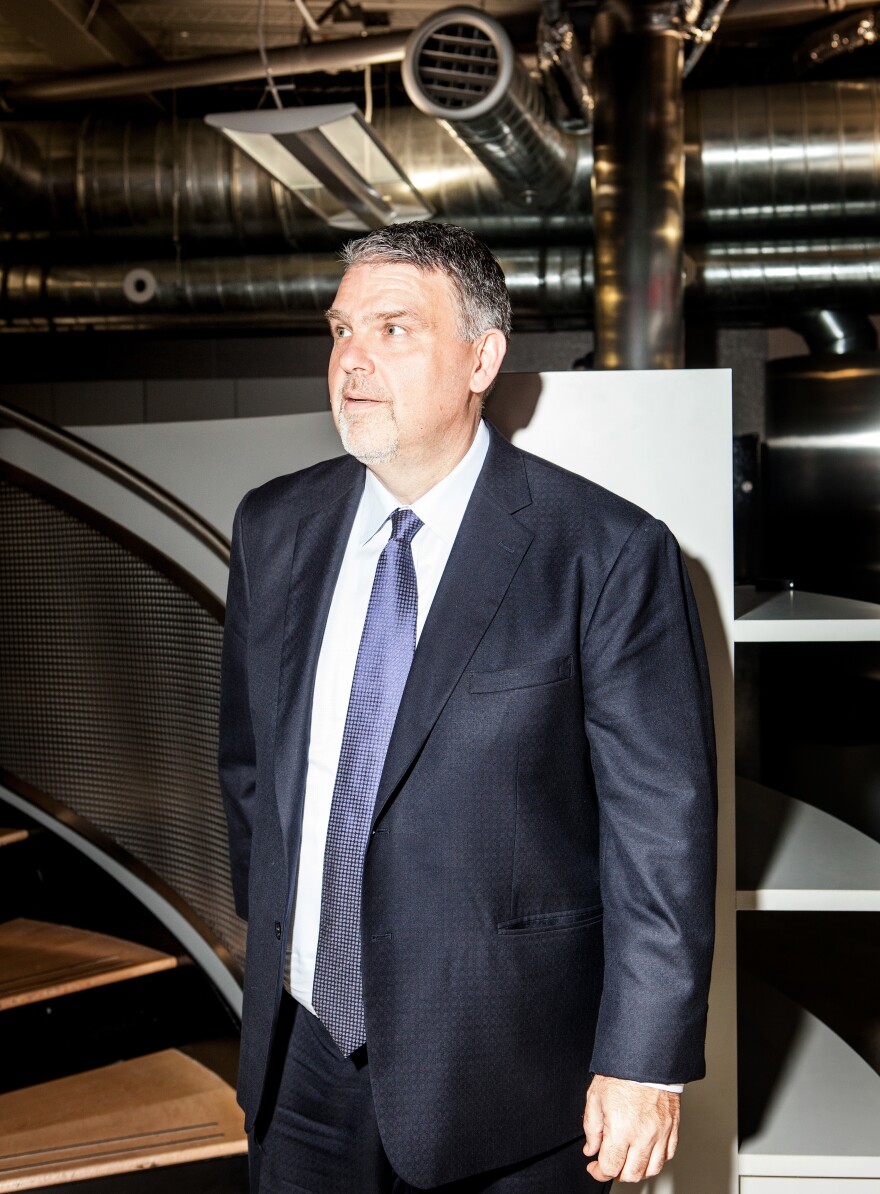Success on the battlefield against the Islamic State won't translate into an immediate reduction in the threat from attacks in the West, the top U.S. counterterrorism leader told NPR.
Nicholas Rasmussen, director of the National Counterterrorism Center, said the tactical gains the U.S. military and its partners are making in Iraq and Syria are a "necessary" part of quashing the danger it poses — but not "sufficient."
"We do need that success — but there'll be a lag in the benefits we accrue," he said.
Battles won in Iraq and Syria, fighters killed and territory recaptured don't amount to a "1 for 1" connection in eliminating the threats posed by ISIS-directed or inspired attacks in Europe or the U.S., he acknowledged.
Rasmussen, who spoke to NPR inside the counterterrorism center operations room outside Washington, is the latest top administration official to try managing expectations about how quickly the military defeat of ISIS would lead to the defeat of the ISIS terror threat.
President Obama offered a similar caution last week after a meeting with his top national security team at the Pentagon, telling reporters that even recapturing two key cities in Iraq and Syria from ISIS wouldn't diminish the immediate terror danger.
But there is some good news, officials say: Leaders of the U.S. counterterrorism apparatus are confident they can detect, disrupt or stop big, complicated attacks of the scale of Sept. 11, 2001.
And they say the government's internal process for working together — in which agencies from the Department of Agriculture to the CIA to local police and fire departments use NCTC to share information — is working as well as it ever has.
"I think we've got the mix about right. ... What we've done is create for ourselves an apparatus and an architecture that can respond to terrorism for decades, if not hundreds of years to come," Rasmussen said.
The danger from smaller-scale attacks directed or inspired by ISIS, however, may linger for a long time.
The Islamic State can be defeated both as a self-styled "caliphate" and as a terror network, Rasmussen said — but he stressed that the West can't declare victory whenever allied forces recapture Mosul, in northern Iraq, and the ISIS "capital" of Raqqa, in Syria.
Even the death or capture of ISIS leader Abu Bakr al Baghdadi, while it would be "significant," might not create a dramatic difference, Rasmussen said. "The payoff from that ... does not come quickly."
One reason is that ISIS' ability to plan and make decisions is diffuse, and doesn't necessarily depend on any one key leader.
Another reason, Rasmussen said, is that the dangers of ISIS-era terrorism are different from the threats posed after 2001 by al-Qaida. Where al-Qaida tended to be closed, insular and cagey with outsiders, ISIS is much more willing to "reach out and grab" any fellow traveler, he said — including "lost souls" who may have no connection other than those made on social networks.
That was the case in San Bernardino, Calif., Orlando, Fla., and Nice, France. In the past, would-be terrorists might travel to Afghanistan or Syria for training and indoctrination. Their goals might include hijacking or destroying several airliners at a time.

Today, potential attackers need only watch videos online or read extremist material to form a connection with ISIS — even if it has no connection with them.
That can happen very quickly, Rasmussen said — the time from "flash" to "bang" is now "compressed" — and it requires no special equipment. Anyone with a rifle or a truck or a machete has access to a potential terror weapon, and there may be no wiretaps, surveillance or other intelligence to help warn that an attack is coming.
Even when there are, as in the case of Orlando shooter Omar Mateen — who came to the attention of FBI investigators well before he attacked the Pulse nightclub in June — Rasmussen said he didn't believe anything could have been done differently.
There's only so much counterterrorism officials can do, he acknowledged.
"What you can't account for is what's taking place inside an individual's head," Rasmussen said.
Copyright 2020 NPR. To see more, visit https://www.npr.org.



